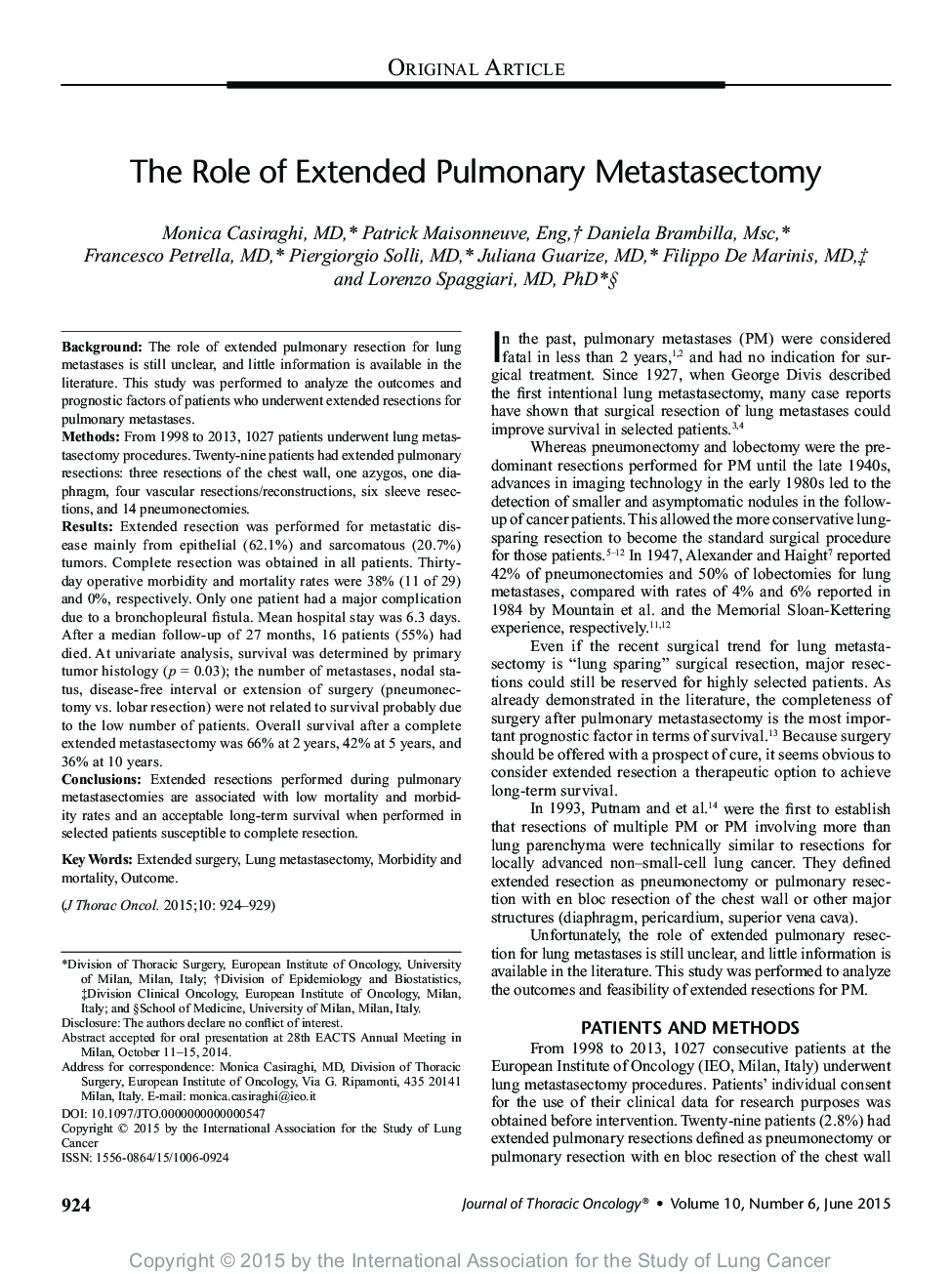| Article ID | Journal | Published Year | Pages | File Type |
|---|---|---|---|---|
| 6192892 | Journal of Thoracic Oncology | 2015 | 6 Pages |
BackgroundThe role of extended pulmonary resection for lung metastases is still unclear, and little information is available in the literature. This study was performed to analyze the outcomes and prognostic factors of patients who underwent extended resections for pulmonary metastases.MethodsFrom 1998 to 2013, 1027 patients underwent lung metastasectomy procedures. Twenty-nine patients had extended pulmonary resections: three resections of the chest wall, one azygos, one diaphragm, four vascular resections/reconstructions, six sleeve resections, and 14 pneumonectomies.ResultsExtended resection was performed for metastatic disease mainly from epithelial (62.1%) and sarcomatous (20.7%) tumors. Complete resection was obtained in all patients. Thirty-day operative morbidity and mortality rates were 38% (11 of 29) and 0%, respectively. Only one patient had a major complication due to a bronchopleural fistula. Mean hospital stay was 6.3 days. After a median follow-up of 27 months, 16 patients (55%) had died. At univariate analysis, survival was determined by primary tumor histology (p = 0.03); the number of metastases, nodal status, disease-free interval or extension of surgery (pneumonectomy vs. lobar resection) were not related to survival probably due to the low number of patients. Overall survival after a complete extended metastasectomy was 66% at 2 years, 42% at 5 years, and 36% at 10 years.ConclusionsExtended resections performed during pulmonary metastasectomies are associated with low mortality and morbidity rates and an acceptable long-term survival when performed in selected patients susceptible to complete resection.
